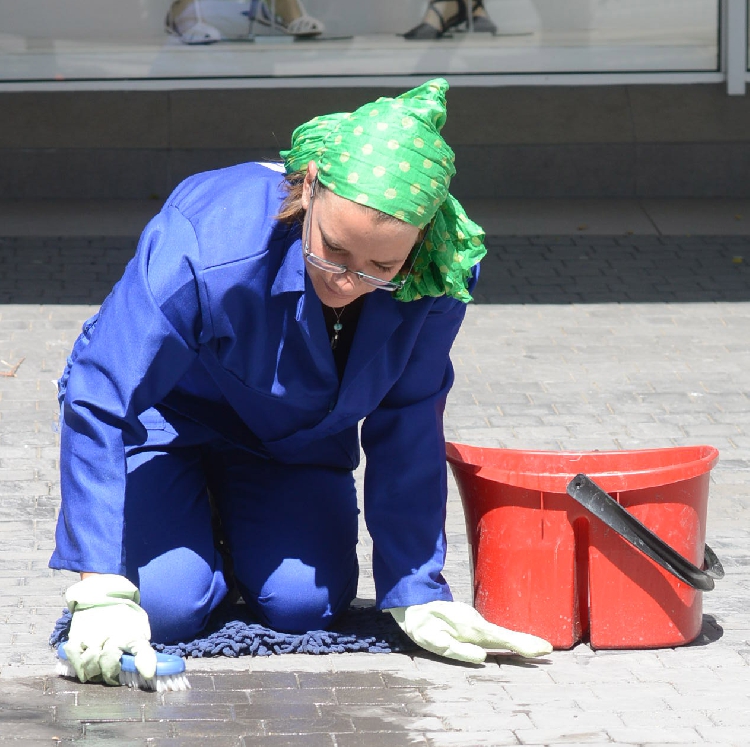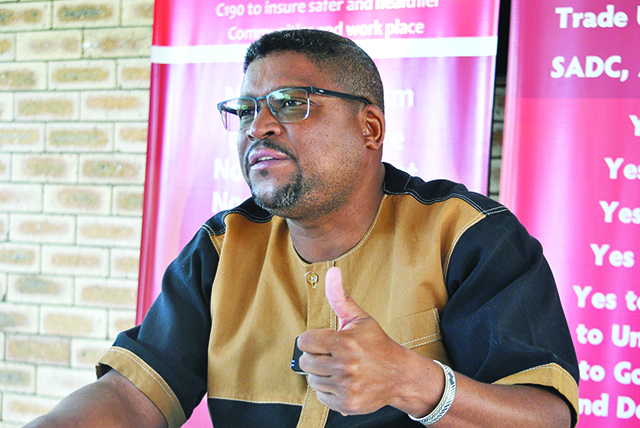If you found yourself on Independence Avenue last week, you might have noticed something you don’t see every day.
A white woman, Kirsten Wechslberger, scrubbing the walkway on her hands and knees while wearing blue overalls, the uniform of street cleaners across the country.
Apartheid might long be over, but its consequences and legacy still live on. With the recent racist comments made on social media, the topic of racism and how it is still prevalent in post-independence Namibia has started to stir conversations in our schools, homes and workplaces.
When acts of racism like this are brought to light, the government and public rush to condemn those actions and express how racism does not have a place in our new Namibia.
But when many are taken aback by the idea of a white woman cleaning the street, a job that is typically associated with black people, nobody questions how internalised racism has become in our society.
Why shouldn’t a white woman clean the street like anyone else? Why shouldn’t there be a white domestic worker? Why did passers-by notice Wechslberger cleaning the street and not other men and women who spend hours collecting litter and sweeping our floors to keep our city tidy?
These are some of the questions Wechslberger hoped to answer in her performance piece, titled ‘Comment Remark Notice’, which took place last week.
She would return to the same spot every day, from Monday to Friday, cleaning from 09h00 to 11h00, while unknowing passers-by gawked, commented and remarked on what she was doing. Black and white alike.
“One man offered me a job to come clean for him; a German woman started bringing me tea; and this Oshiwambo couple asked why this Shilumbu is cleaning the street.”
When asked what was one of the most surprising aspects of her experience, Wechslberger said: “A little boy asked me to buy him a blanket. Here I was, scrubbing the street with the idea that I don’t own much, and yet, to this little boy, my whiteness stood out and he wanted something from me. It created a conflict within myself because I didn’t have much to give him”.
Kirsten explains that one of the most poignant things she learnt from the experience was how certain jobs are looked down upon, and how people treat you according to what you do.
“Your value is determined by what you do and how much you get paid, and even though people like cleaners do important work by keeping our city and country clean, they are still looked down upon. I could feel it when I was scrubbing and someone would literally walk in my space, almost stepping on my fingers as they walked past,” she said.
“I don’t have solutions or the answers. I just want to create awareness. I can’t force my beliefs on people, all I can do is have them think about their own.”
‘Comment Remark Notice will continue in a series where Wechslberger explores other roles and how people react to her throughout other parts of the city.
Stay informed with The Namibian – your source for credible journalism. Get in-depth reporting and opinions for
only N$85 a month. Invest in journalism, invest in democracy –
Subscribe Now!






